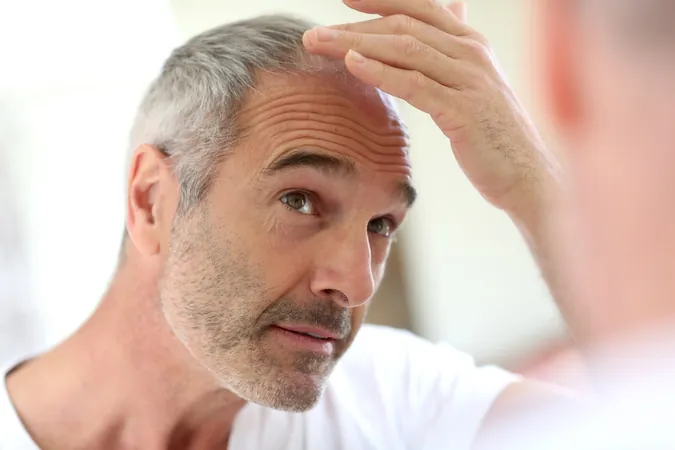
Revolutionary Sugar Gel Could Be the Game-Changer for Hair Loss Treatment!
2025-01-12
Author: Ming
Introduction
Hair loss is a pressing issue that impacts millions across the globe, with hereditary-patterned baldness being the leading cause. Despite the high prevalence, effective treatment options have often been limited. However, emerging research presents a groundbreaking hair regrowth gel derived from a naturally occurring sugar found in DNA, which could potentially transform how we approach hair loss solutions forever.
The Discovery
The journey began in a lab where researchers at the University of Sheffield and COMSATS University were investigating deoxyribose, a vital sugar component of DNA. In a surprising twist during their study on wound healing, they noticed that mice treated with deoxyribose exhibited accelerated fur regrowth on their skin wounds. This discovery sparked their curiosity about the sugar's potential role in promoting hair growth.
Research Trials
Diving deeper, the team conducted trials using the hair regrowth gel on male mice experiencing testosterone-induced hair loss—often a model for male-pattern baldness. The results were nothing short of extraordinary; within weeks, the mice displayed significant hair regrowth in treated areas, with strands that were not only longer but also thicker. To top it off, this innovative gel matched the efficacy of minoxidil, an FDA-approved topical treatment widely used for hair loss.
Unique Selling Proposition
What makes this new gel stand out in a crowded marketplace? Unlike established treatments like minoxidil or finasteride, the deoxyribose gel boasts a non-toxic, biodegradable formulation that taps into the body’s natural processes. It works by enhancing blood supply to hair follicles, thus stimulating growth without the daunting side effects typically linked to conventional drugs like finasteride, which can include reduced libido and mood swings.
Limitations of Current Treatments
Current FDA-approved treatments come with their own sets of limitations. While minoxidil may offer results for some, it is not universally effective, and finasteride, despite its reliability, raises concerns about unwanted side effects. This highlights the pressing need for safer and more efficient alternatives—a gap this revolutionary gel is poised to fill.
Conclusion
Though still in the early research phases, the findings are immensely promising, suggesting new hope for individuals plagued by hair loss. If subsequent studies validate its effectiveness in human subjects, this innovative gel could redefine treatment strategies, potentially benefiting those with conditions such as alopecia and hair loss due to chemotherapy.
Final Thoughts
Stay tuned! This could be the solution we’ve all been waiting for in the battle against hair loss!
 Brasil (PT)
Brasil (PT)
 Canada (EN)
Canada (EN)
 Chile (ES)
Chile (ES)
 Česko (CS)
Česko (CS)
 대한민국 (KO)
대한민국 (KO)
 España (ES)
España (ES)
 France (FR)
France (FR)
 Hong Kong (EN)
Hong Kong (EN)
 Italia (IT)
Italia (IT)
 日本 (JA)
日本 (JA)
 Magyarország (HU)
Magyarország (HU)
 Norge (NO)
Norge (NO)
 Polska (PL)
Polska (PL)
 Schweiz (DE)
Schweiz (DE)
 Singapore (EN)
Singapore (EN)
 Sverige (SV)
Sverige (SV)
 Suomi (FI)
Suomi (FI)
 Türkiye (TR)
Türkiye (TR)
 الإمارات العربية المتحدة (AR)
الإمارات العربية المتحدة (AR)